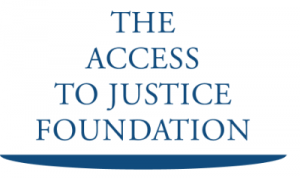Exploring innovative funding solutions
We’re dedicated to improving access to justice across the UK, which means exploring new funding approaches that can make a real difference.
How we're innovating
Since 2008, we’ve pioneered creative funding methods like Pro Bono Costs Orders to help more people resolve their social welfare legal problems. During this time, we’ve witnessed massive cuts to traditional funding, the rise of digital solutions, a global pandemic, and unprecedented demand driven by the cost-of-living crisis.
Legal advice charities skilfully combine diverse funding sources to serve the legal needs of marginalised communities. But the complex mix of legal aid, local authority funding, and philanthropic support falls significantly short of meeting current demand.
Our 2023-24 Funding Gap Report revealed our partners face almost £30 million in shortfalls between their budgeted needs and secured funds—and this gap continues to grow.
Calls for increased funds
In 2015, the Low Commission calculated that providing basic information and legal advice on social welfare law in England and Wales requires at least £500 million annually.
They called for £50 million in new government funding to create a National Advice and Legal Support Fund, plus another £50 million from other sources to complement this initiative at both national and local levels.
In 2018, the Bach Commission reinforced these recommendations. Despite strong evidence, we’ve seen limited progress toward making them reality.
Where will that additional £100million of funding come from?
Publicly funded legal services with legal aid at their core remain essential to any meaningful access to justice solution. Without systems that truly level the playing field, justice remains a luxury many can’t afford. But we know legal aid isn’t the only solution.
Creating an evidence base for action
While we continue advocating for increased government investment, some of the most effective funding solutions already work successfully in other countries. The Regulatory Leadership on Access to Justice report explores several promising examples.
These approaches remain underutilised in the UK despite their enormous potential. To implement solutions that work for us, we need a clear understanding of available options and how they might function in our legal system.
We are one of the partners leading the Mixed Funding Models for Free and Early Legal Advice research project with the Centre For Socio-Legal Studies, funded by the Nuffield Foundation.
This collaborative initiative brings together legal and advice sector partners to explore successful funding models from around the world and adapt them to strengthen UK free legal advice services.
What are the options?
When collective action cases conclude, undistributed damages can now come to the Access to Justice Foundation for distribution to legal charities across the UK. Learn more about this opportunity here.
We’re bringing stakeholders together to maximise the impact of these funds through transparent and collaborative distribution processes.
IOLTA schemes pool small amounts of interest generated from client funds held briefly by law firms. In 2020, the American Bar Association reported US IOLTA funds exceeded $175 million, supporting free legal advice and education initiatives nationwide.
These schemes operate successfully in every US state, as well as Canada, Australia, and other countries. They vary in structure, approach, and use of the funds generated. Some schemes exclude certain law firms, some work on an opt in basis. Some are administered by legal services regulators, others by independent foundations.
We want to thoroughly consider the range of possible IOLTA models and the implications, positive and negative, of each in the UK.
Roger Smith’s 2023 proposal for a National Legal Service included calls for both increased legal aid funding and a levy on the legal profession. Other options include court fee levies, contributions from wealthy litigants, and strategic use of the apprenticeship levy—currently being explored by the London Advice Workforce Development Fund.
Expanded legal expenses insurance offers another promising path. In Canada, public legal expenses insurance proposals could transform access to justice for thousands of people.
Law firms can donate Residual Client Balances (RCBs)—funds that have remained dormant in accounts—to charities focused on access to justice. Learn more about our own campaign supporting donation of RCBs here.
The Solicitors Regulation Authority has the power to change rules around these donations, potentially directing these funds and other resources like professional fines toward access to justice initiatives. An initial consultation on client money in legal services has already been completed.
Stay up to date
For the most current research and emerging models, the Mixed Funding Models research project shares regular updates on our collaborative research and insights into how these funding models could be developed in the UK.
